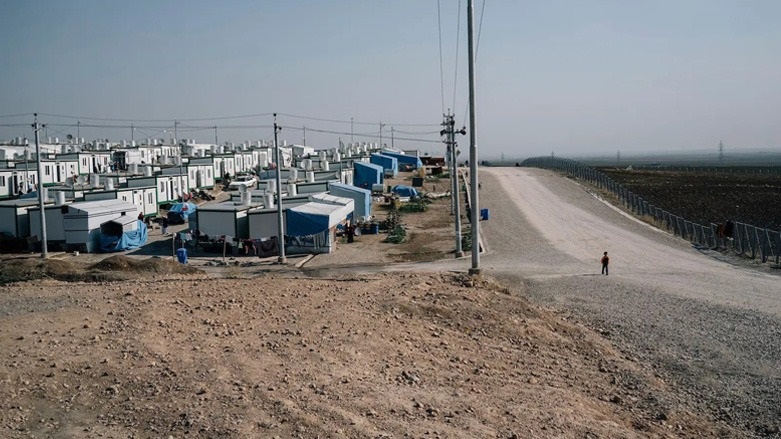HRW slams Iraqi government’s lack of compensation for Yezidi survivors
HRW report titled ‘Compensation for ISIS Victims Too Little, Too Late,’ is based on interviews with several Yezidi survivors, lawmakers, members of civil society groups, and Western diplomats.

ERBIL (Kurdistan 24) – The Human Rights Watch (HRW) on Tuesday criticized the Iraqi government’s failure in compensating the Yezidi survivors for the atrocities they faced as a result of the so-called Islamic State offensive against Sinjar in 2014.
The watchdog report titled ‘Compensation for ISIS Victims Too Little, Too Late,’ is based on interviews with several Yezidi survivors, lawmakers, members of civil society groups, and Western diplomats.
While 5,000 of 10,500 compensation claims have been approved for reparations at Sinjar Compensation Office, not a single Yezidi family has received funds to which they are entitled, the HRW reported.
According to the interviewees, red tape and the lack of a budget were cited as hampering the compensation process.
“Without compensation, many Sinjaris [people of Sinjar] lack the financial means to rebuild their homes and businesses, so returning home is simply not an option,” according to Sarah Sanbar, Iraq researcher at Human Rights Watch, calling on the Iraqi government to release the necessary funds in order to facilitate the return of the displaced Yezidis, estimated to be 200,000.
At the peak of the 2014 humanitarian crisis, sparked by the fight against ISIS, the Kurdistan Region hosted nearly 2.5 million internally displaced people and Syrian refugees, while at the time fighting back against the terror group on its borders.
Around 85 percent of Sinjar’s displaced population still reside in IDP camps in the Region’s Duhok province, as they are unable to go back to their homes, citing a lack of reconstruction efforts, instability, and militia presence.
The Yezidi survivors and other ethnic minorities, including Christians and Shabaks are entitled to compensation under two laws– namely the Yezidi Survivors Law (2021) and Law No. 20 (2009) – for material damages to civilian victims of war, including their family members.
The Iraqi parliament passed the Yezidi Survivors Law in 2021 to compensate the Yezidi female survivors, including those of other religious minorities.
The first group of 420 Yezidi women received financial compensation under the law in February 2023, according to the report, hailing the payments as a “positive and necessary step” to address the atrocities committed against the community.
While the federal government has closed down all the displacement camps under its jurisdiction, the Kurdistan Regional Government (KRG) has refused to force the displaced population to go back to their areas.
The Kurdish government has recently criticized the Iraqi Ministry of Migration and Displacement policy regarding the displacement dossier, calling it “very irresponsible”.
The ministry had previously accused KRG of using the humanitarian condition for its own political purposes, a charge the Region’s officials have vehemently denied.
ISIS has killed, sexually enslaved, and kidnapped thousands of the Yezidis’ women, and the fate of 2,000 others remains unknown.
Through its rescue office, the KRG has been able to recover hundreds of Yezidi women.
The Iraqi government and the United Nations have both labeled the atrocities committed against the religious community as “genocide”.
The ethnoreligious minority, speaking the Kurdish Kurmanji dialect, has faced at least 72 genocides in their history.
In late March, Prime Minister Masrour Barzani announced that his government would embrace the Yezidi victims of sexual violence.
“If they [survivors] will not be accepted due to cultural restraints, we will provide them with security, shelter, livelihoods, and childcare,” he added.
